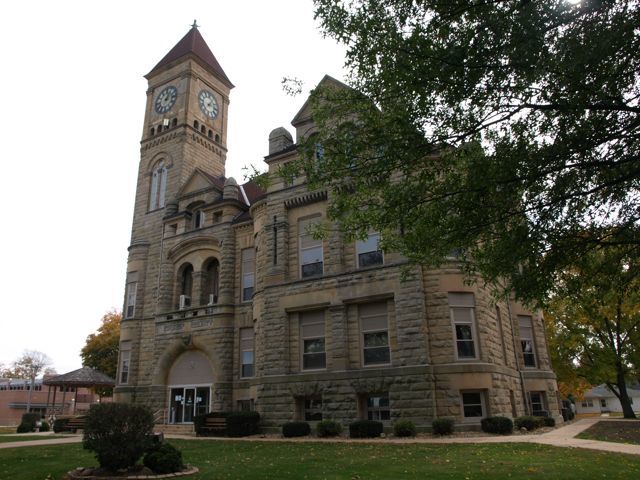Since the founding of our communities, organizations, businesses and citizens have stepped forward to build and serve their community. Click on any of the logos below to learn about those who made this website possible! If you would like to learn about becoming a sponsor CLICK HERE!

- County: Grundy County, IA
- Region: Northern IA
- Sponsors
- About Grundy Center, IA
- Businesses
- Community Organizations
- Faith Organizations
- Festivals and Events
- Points of Interest
- Veterans
- Visit Facebook Page
- Visit Website
Learn how to Contribute to any of the above categories.
No news yet. Got some news? Hit that NEW POST button!
About Grundy Center, IA
Felix Grundy, the 19th Century statesman after which Grundy County is named, was one of the greatest criminal lawyers of his time. He served with distinction in both the U.S. House of Representatives and U.S. Senate, and as United States Attorney General in the cabinet of President James Polk.
In Congress, Grundy championed the sale of public land in the West to settlers and pushed for the western development of railroads and mail service west of the Mississippi River. On January 15, 1851 – 11 years after his death – the Iowa Third General Assembly, meeting in what is now the Old Capital Building on the campus of the University of Iowa – established for the first time the boundaries of many Iowa counties and assigned them names.
One was named “Grundy,” in honor of Felix Grundy, the renowned Tennessee lawyer, distinguished lawmaker, statesman, cabinet member and esteemed friend of presidents. He was born on September 11, 1777, in Berkeley County, Western Virginia, the seventh son of George and Elizabeth Grundy, a farmer of English decent.
In 1779, Indian uprisings on the frontier forced the family to move to Pennsylvania, but in the following year they migrated to Springfield, in central Kentucky, where George Grundy soon died. It was here that Felix Grundy, received his meager formal education, at the Bardstown, KY academy.
Mrs. Grundy wanted young Felix to study medicine. But the youth exhibited great talent as a public speaker and was determined to pursue a legal and political career. After completing his formal studies, Grundy spent two years reading law in the office of a George Nicholas, a practicing attorney. On November 5, 1797, at the age of 20, Felix was admitted to the bar and began practicing law in Washington County, KY.
While residing in Springfield, Felix Grundy married Ann Phillips Rodgers, a second cousin of John C. Calhoun, who was to become the seventh vice president of the United States. The couple had 12 children. Two years later he was elected to his first public office – as a representative to the state convention which was called to remodel the Kentucky constitution.
In December 1806, he was commissioned by the legislature as judge of the Kentucky Court of Appeals, and in April 1807, was promoted to chief justice of the Kentucky Supreme Court. Disliking the dull life as a justice was forced to lead, Grundy suddenly resigned in late 1807 and moved his family to Nashville, TN, then a frontier town numbering only a few hundred souls.
It was this disapproval of the actions of Congress which resulted in the placing of many new members in the 12th Congress – among them Felix Grundy. Re-elected to Congress in 1813, Grundy resigned the following year because of the illness of his wife, and returned to his law practice in Nashville.
On March 16, 1826, Grundy appeared in Judge Samuel Robert’s court at Edwardsville, IL, to defend one P.H. Winchester for the murder of Daniel Smith, the recorder of Pike County. In this trial Grundy exhibited all the points that made him one of the greatest criminal lawyers of his time. Meanwhile, Grundy abstained from office until 1819, when a panic that year abruptly ended his political retirement. He was elected to a seat in the Tennessee State Legislature.
For six years Grundy served in the legislature, then withdrew from public life for two years, and finally in 1827 he ran for Congress again, this time in Jackson’s home district. Although he was openly supported by ‘Old Hickory,’ Grundy was defeated. On the transfer of John H. Eaton from the Senate to accept the post of Attorney General in Van Buren’s cabinet.
On December 19, 1840, he died. Following funeral services at the Presbyterian Church, his remains were interred at Mount Olivet Cemetery in Nashville. More than a decade later the name surfaced again when the Iowa Third General Assembly assigned names to this state’s newest counties.
Businesses of Grundy Center, IA
The businesses of our towns are truly the lifeblood of each community, click on any businesses below to learn about them, to learn how to add your business to your town and county page CLICK HERE!
Community Organizations of Grundy Center, IA
Small towns and rural communities throughout the Midwest are looking for ways to strengthen their economies, provide better quality of life, and build on local assets. Here you will find the organizations that stabilize, preserve, and revitalize the small towns and rural areas alike. To submit your organization to be included on your town and county page CLICK HERE!
Events of Grundy Center, IA
The small towns of the Midwest have long shared pride in their communities through festivals and events! Citizens from each community, working together, continue to offer entertainment options that not only appeal to their citizens, but visitors to their community! Below you will find festivals and events you are sure to want to attend! If you would like to have (DST) include an annual festival or event on your town and county page CLICK HERE!
Faith Organizations of Grundy Center, IA
Throughout the years faith organizations have not only been an essential part of a town's religious life, but its community life. Below you will find stories about these organizations, If you would like to induct a faith organization to be added to your town and county page CLICK HERE!
Points of Interest of Grundy Center, IA
The communities of the Midwest have a lifestyle unique to their region — rich in history and points of interest like no other! Below you will find points of interest you are sure to want to visit! To nominate a landmark, historic location, museum, etc. as a point of interest on your county and region page CLICK HERE!
Grundy County, IA
Visit our county page and you will find information about our town and county's points of interest, festivals/events and faith community. You also will learn about the community organizations that have built and continue to build strong communities (chambers, community groups, and departments, etc) and much more when you visit the Grundy County, IA page.
Veterans of Grundy County, IA
Veterans come from many walks of life and whether a veteran has severed two decades ago or two days ago, they have made our freedoms possible. Below you will find stories about many who have served. If you would like to nominate a veteran to be included on your town and county page CLICK HERE!


















